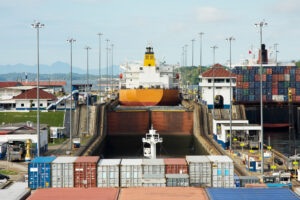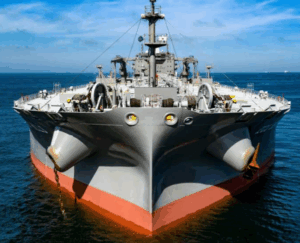The Galveston Bay area is set to get its first dedicated LNG bunkering facility within a few years’ time, thanks to a new joint venture between two leading partners Seapath, a maritime subsidiary of Libra Group and Pilot LNG, a Houston-based clean energy solutions firm.
The project, which will be developed with an initial investment of approximately $150 million, meets the needs of a vital global and U.S. trade corridor.
The joint venture (JV) will develop, construct, and operate the first liquefied natural gas (LNG) bunkering facility in the U.S. Gulf Coast.
With operations beginning in early 2026, the construction of the new facility will provide fuel for LNG-powered vessels in the Greater Houston/ Galveston area of Texas, which is recognized as the top U.S. port by tonnage.
Pilot and Seapath’s LNG bunkering facility will use their combined expertise to serve essential U.S. Gulf Coast port complexes, including servicing major cruise lines and container vessel operators.
One of the partners Seapath – which belongs to Libra Group with three subsidiaries, one of which Lomar Shipping with a fleet of more than 40 vessels, and Americraft Marine which owns and operates a Jones Act Shipyard in Palatka, Florida – is dedicated to investing across the marine infrastructure space and will provide strong financial backing to Pilot’s LNG bunker projects, as Jonathan Cook, chief executive of Pilot revealed.
According to Clarkson Research, alternative fuel-powered vessels were approximately 60 percent of all new vessels ordered since 2022. Of these orders, roughly 80 percent are vessels powered by LNG, including by operators of container vessels.
“The infrastructure under development will provide LNG to a growing market seeking cleaner marine fuel, particularly as customers look for economical ways to comply with tightening emissions regulations, including regulations set by the IMO in 2020,” said chief exeutive of Seapath, Greg Otto.
“We are pleased to be working with a first-class team in Pilot LNG and with some of the leading ports in the United States to bring this critical LNG bunkering infrastructure to the Gulf Coast region where there is high demand for it.”
Manos Kouligkas, chief executive of Libra Group said “Adoption of more sustainable fuels is critical to future-proofing our industries against a rapidly changing ecosystem. We will continue to support the transition to greener energy solutions, and we look forward to following Seapath’s work to evolve the U.S. maritime industrial sector.”
Pilot and Seapath will continue with all front-end engineering and design development for their projects in the third and fourth quarters of 2023 to file applications with the necessary federal and state agencies to permit, site, construct and operate the small-scale LNG terminal for marine fuel.



